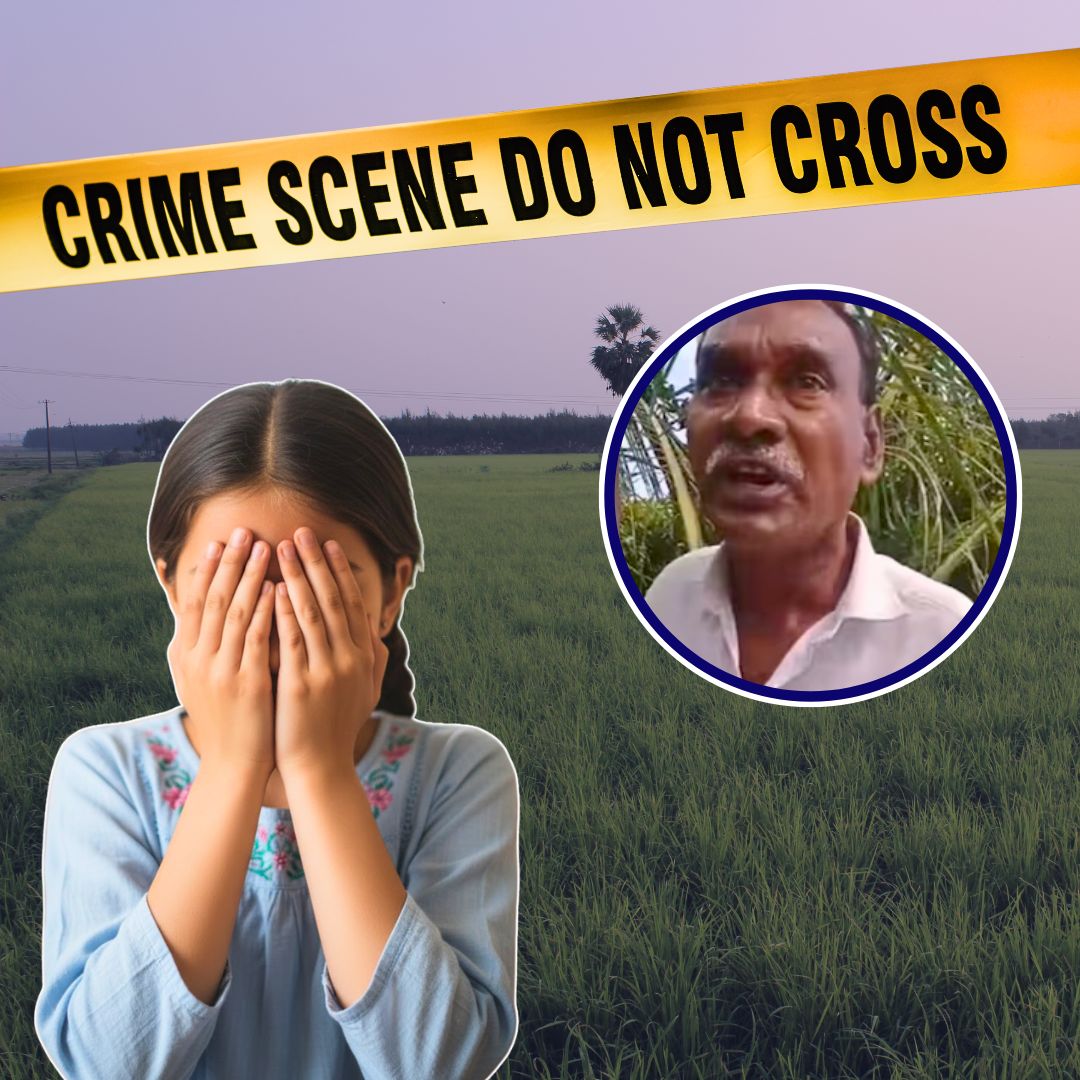Senior Telugu Desam Party (TDP) leader Tatik Narayana Rao was arrested in Kakinada district, Andhra Pradesh, for allegedly attempting to sexually assault a 13-year-old schoolgirl after posing as her grandfather.
The incident has sparked widespread outrage, raising urgent questions about child safety in schools and accountability for political figures accused of violent crimes.
Deception and Arrest: How It Unfolded
According to police reports, Rao deceived the girl by impersonating her grandfather and persuading her to leave the school premises. He took her to a mango orchard on the outskirts of Tuni town, where he allegedly attempted to molest her.
The orchard’s owner, noticing suspicious behaviour, recorded Rao on video. Upon realizing he was being filmed, Rao fled on his scooter with the girl. The victim’s family filed a complaint, leading police to track and arrest Rao. Andhra Pradesh Police Superintendent DSP Srihari Raju confirmed that Rao faces charges under the Protection of Children from Sexual Offences (POCSO) Act, including kidnapping and attempted sexual assault.
Protests erupted at the Gurukula School, where the incident occurred, with local residents and the girl’s family demanding stringent action.
Political Fallout and Community Reaction
Tatik Narayana Rao, a senior Dalit leader of TDP, was promptly suspended from all party activities. TDP officials described the allegations as “deeply disturbing” and promised full cooperation with law enforcement. Meanwhile, opposition parties and child welfare advocates seized on the incident to highlight the ongoing issues of women’s and children’s safety in Andhra Pradesh, particularly under the current political administration.
The YSR Congress Party’s student wing condemned Rao as a “vile elderly predator” and called for immediate justice. Further scrutiny fell on the Gurukula School’s administration, with police questioning the principal on alleged negligence allowing the girl to leave the hostel without permission.
The orchard owner, despite recording the crime, is also under investigation for publicly sharing the video rather than reporting it directly to authorities, a misstep that could complicate evidence handling.
Legal and Social Implications
The FIR includes multiple stringent sections of the POCSO Act to ensure rigorous prosecution. Police warned the public and media against sharing images or videos of the minor, emphasising that any circulation of such material is a punishable offence under POCSO guidelines.
The investigation is ongoing with efforts to bring all responsible parties to justice. This case has reignited important societal discussions on the vulnerability of children in educational environments and the mechanisms to protect them.
Advocates argue that political stature or social status must never shield perpetrators and that institutions should establish more robust safeguards, including enhanced background checks for those interacting with minors.
The Logical Indian’s Perspective
This appalling incident lays bare the urgent necessity for systemic reforms in child protection and community accountability. The vigilance demonstrated by the orchard owner and timely police response were crucial in preventing a worse outcome, yet they highlight failures in supervisory systems within schools.
The Logical Indian advocates zero tolerance towards abuse and exploitation and emphasises that no individual, regardless of political influence, should evade justice.
In fostering a culture of empathy, respect, and safety, it is incumbent on all stakeholders-including families, schools, political parties, and law enforcement-to collaborate proactively for the well-being of children.











